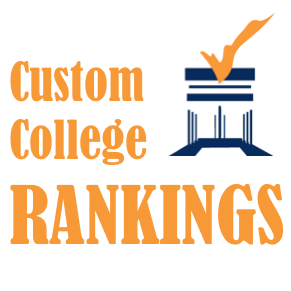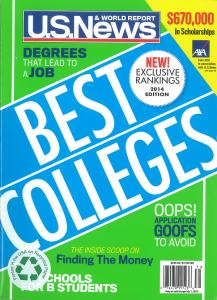 Over the years, parents have cornered me and asked me questions about the college admissions process and their college-bound teens. While those questions are varied, and sometimes specific as they relate to their own circumstances, parents undoubtedly have questions about the college prep process and beyond. Following are some of the most common questions parents ask about college.
Over the years, parents have cornered me and asked me questions about the college admissions process and their college-bound teens. While those questions are varied, and sometimes specific as they relate to their own circumstances, parents undoubtedly have questions about the college prep process and beyond. Following are some of the most common questions parents ask about college.
About choosing a college
How many colleges do you think my teen should apply to?
Here’s a good formula: 3 reach colleges (colleges that might be a reach but still attainable), 4 good fit colleges (colleges that are a good match for the student), 3 safety colleges (colleges that the student will be at the top of the applicant pool). Having choices also means the colleges are in competition, which translates into negotiation for you with the financial aid package.
What’s the most important tip you could give me about the college admissions process?
Find those “perfect fit” colleges. Do the research and evaluate choices based on student body, academic programs, college visits, location and financial aid awards. If the college is a good fit, they will value the student for his/her contribution to the student body. Those are the colleges you want in your application pool.
About financial aid
Should I fill out the FAFSA even though I think we make too much money to qualify for financial aid?
YES. YES. YES. The FAFSA is what colleges use to determine your EFC (Expected Family Contribution) which is used to determine the financial aid package. This package is NOT just federal aid. It’s composed of grants, scholarships and loans (much of which is merit-aid directly from the colleges themselves). If you don’t fill it out, your teen can’t get ANY of that money.
We can’t afford to pay for college, does that mean our teen won’t be able to go?
There are all kinds of ways to finance a college education: student loans, work-study, college grants and scholarships. Everyone qualifies for parent and student loans. But be wise about your borrowing and consider the best options. Paul Hemphill with Pre College Prep has come up with a GREAT way to attend college on the cheap!
About SAT scores
My teen’s SAT scores aren’t that great; will it affect their admissions chances?
The bottom line is that most colleges do look at those SAT scores. But, it’s just part of the overall picture. The best advice I can give is MAKE CONTACT with an admissions representative from EVERY college your teen is applying to. This PERSONAL contact can and will make a difference when the admissions application is reviewed. Do this by visiting and making an appointment to speak with them. Then hang on to their card and stay in contact until acceptance letters arrive.
About organization
My teen is so scatter-brained and we keep missing deadlines–how can I help them get organized?
Set up a landing zone for college material. Use a desk, a file cabinet, a bulletin board, and a wall calendar to keep track of deadlines. Start this freshman year and remind them that their floor is NOT the landing zone. Once they get used to bringing everything to that one spot, it will be easier to find, file and locate all the college related materials.
About dealing with rejection
What do you do when your student is rejected? How do you handle your feelings? How do you handle your student’s feelings?
When it arrives you may want to try and spin it into a positive. Resist that temptation. It’s upsetting to both you and your student. Allow some time to display the emotions related to the disappointment and the feelings of rejection. It’s only natural to feel them and it certainly hasn’t been the first or the last time your student will be disappointed. Parents take these letters personally. How dare they reject MY child! Our disappointment can often overshadow the feelings our student has. Be careful and don’t project your disappointment on to your student. He/she feels bad enough already; the last thing they need to feel is that they disappointed their parents by not getting accepted.
Every student reacts differently. Some might shrug it off (to your surprise) and others might see this as the end of their world as they know it. The hardest part of this whole college process is dealing with disappointment and rejection. All the truisms in the world won’t help at this moment. Hold them, hug them, and let them know that you feel their pain. Don’t spout off truisms like “it will be ok” or “you don’t want to go there if they don’t want you.” Your student needs the time to deal with their disappointment and move on.
Once the time has passed and your student is able to be objective, use this as a life lesson. Remind them that there is a place for them and that there is a college where they will feel wanted and accepted. Point out that life is filled with disappointments that often turn into opportunities and you never know what lies ahead on the path you might not have originally chosen.
Every child faces disappointment and rejection throughout their life and a parent’s goal should be to help them face those hurtful times with love and perspective.
About college discontent
What do I do when my student wants to drop out of college or talks about transferring during the first semester?
Before you say anything listen to their reasons. Don’t scream and yell, listen. Your student is upset and needs to voice how they feel. It may not be logical or even feasible, but they need to vent and you need to listen. Stay calm and approach this by treating them as an adult. Use reasoning first and see if that helps. Most freshmen get immediately homesick, especially if they don’t get along with their new roommate or their coursework is overwhelming them. Usually by the end of the first semester they have settled in and have made some friends. Usually.
There may be very good financial reasons for them to stick it out and then re-evaluate at the end of the first year. It’s rare that your student will use finances as an excuse to transfer, but if they do, be prepared to answer with a logical explanation.
Is there a friend or a boyfriend encouraging them to move back home or join them where they are? This is the worst reason. Help them to understand that they made the choice to leave and it’s time for them to move on with their life. Holding on to the past will only cause them to miss the benefits of the future. They may be adults but you, almost always, hold the purse strings.
In most cases, you should stand your ground—at least until the end of the first year. Tell your student that if he/she still feels the same way at the end of the year you can revisit the option. It’s my experience that most students, later in life, thank their parents for giving them some tough love when they needed it.
I’m not saying it’s easy to listen to their pain and not act. And in some instances their mental health is much more important than drawing a line in the sand. But you know your child and you will know when they are just too unhappy and miserable to remain where they are. In some cases, they just chose the wrong school.





 What is Custom College Rankings?
What is Custom College Rankings?



